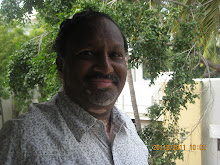The Curry Leaf is a very important ingredient of South Indian cuisine so much so that some preparations bereft of Curry leaves are just not relished. Though the Curry Leaf is so important it is picked from the food and thrown away after cooking, ensuring that the essence of the leaves has been fully extracted. This method of discarding the most important ingredient after it is cooked has been idiomatically used in South Indian vernacular. If some one is shown the door after his "essence" has been fully used by an organisation we relate it to the Curry Leaf Syndrome. With the advent of the globalisation and the entry of the so called corporate culture this Syndrome has come to stay. The Curry Leaf Syndrome had its toll in Microfinance too. Institutions which were planning to move fast from a social mode to the new bandwagon had to pave way for 'new blood' to be infused and had to cull out people of the old school of thought and fill the gap with aspirants from the corporate world. It is today happening to Prof Yunus and the whole Microfinance fraternity (except those who were waiting in the wings for his exit) is shell shocked.
It happened to many others too in the sector during the transition from the social microfinance to commercial microfinance. Today this is noticed because Prof Yunus is known internationally and a recipient of the coveted Nobel prize. It is sad to know that the Government and the judiciary in Bangladesh has failed to see what the Professor has gifted to the world. On the 7th March, on the eve of the International Women's Day I was pleased to see the following statement from the Microcredit Summit Campaign:
"WASHINGTON, DC - More than 128 million of the world's poorest families received a microloan in 2009--an all-time high, according to a report released today by the Microcredit Summit Campaign. Assuming an average of five persons per family, this means that loans to 128 million poorest clients affected some 641 million family members, which is greater than the combined population of the European Union and Russia. Microloans are used to help people living in poverty start or expand a range of small businesses, such as selling basic staples, producing handicrafts, and delivering cell phone services to remote villages."
For more information please visit: http://www.microcreditsummit.org/news
This could not have been possible without the path breaking experiment of Prof. Yunus. I am a great admirer of the professor and was expecting him to get the Nobel in 1995 itself for Economics. Nevertheless, I was gung-ho when he received the Nobel for Peace in 2006. I still remember the day when it was announced and I had a call from a correspondent from BBC Radio's Tamil Service asking my opinion. It was a short interview but reached as far as Sri Lanka from where I received appreciation.
I have a gut feeling that the establishment in Bangladesh has been watching the Egypt Crisis too closely and having seen the emergence of leaders like Mohammed ElBaradei, the former head of IAEA, it has got into a fear psychosis seeing a potential leader in the making in Bangladesh. The recent happenings in Bangladesh are indicative of such a move against a person who is now a global figure. I wish the professor all the strength and resilience to face the crisis and come out successful.
P.Uday Shankar

It has been difficult for interested laymen like me to sort out the two sides of the question regarding MFIs as do-gooder or predatory. People like me also are skeptical of the conspiracy theories behind Younus' ouster, like comparing him to El Baradei. Can you please point me to authentic independent documentation on the subject so that I can read them and make my own judgement? Just as there are independent organizations to evaluate charities and NGOs, is there any for MFIs?
ReplyDelete